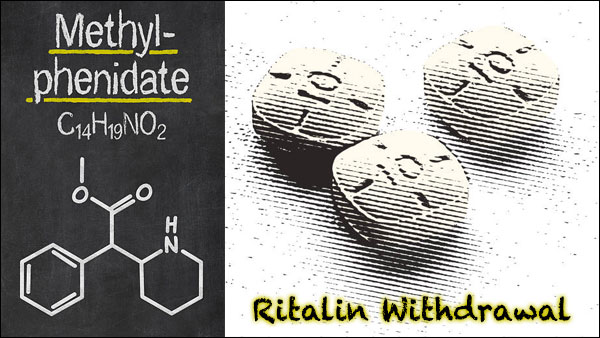The most widely known use for Ritalin is its ability to treat attention deficit hyperactivity disorder (ADHD). Ritalin stimulates the central nervous system and helps to increase focus, planning, organization, and problem-solving skills in those with ADHD.Because it increases the amount of dopamine produced in the brain, it is common to develop a Ritalin dependency after having taken it in large quantities. If you are concerned that you or a loved one may have a problem with this medication, it is best to stop using it before more serious problems arise like anorexia, frequent seizures, mania, and depression.
When stopping, it’s important to understand Ritalin withdrawal and treatment. Continue reading to learn how it works.
The Addictive Qualities of Ritalin
Dopamine is a chemical that’s naturally present in our brains. It is the chemical that activates the brain’s reward system. For instance, the good feeling you have after checking an item off your to-do list is powered by dopamine.
When a person who doesn’t have ADHD takes Ritalin, they will feel a surge of dopamine in a quantity that’s larger than normal. Because of the body’s seemingly positive response to the drug, it is easy to become addicted.
But dopamine isn’t the only factor that turns Ritalin misuse into a learned behavior.
Ritalin contains amphetamine as its main active ingredient. This means it is closely related to methamphetamine which is a highly addictive stimulant.
Its chemical composition closely relates Ritalin to stimulating drugs like cocaine and meth. When you take a large amount (more than what’s prescribed) of Ritalin at a time, your body won’t be able to tell the difference between Ritalin and those other drugs. Meaning you will feel the same type of high cocaine and meth provide.
Additionally, the symptoms of Ritalin abuse are similar to those of cocaine and meth abuse. They include:
- Loss of appetite
- An unhealthy low body weight
- Nausea
- Hallucination
- Seizures
- Vomiting
- Insomnia
- Itching and rashes
- Confusion
- Abnormal nervousness and paranoia
- Abdominal pain
- Dizziness
A Ritalin high is one that increases a persons’ energy and attention levels. But after coming down from the high, sleep patterns are disrupted and it becomes difficult to keep a stable mood.
Because of these factors, you will often notice panicking, anxiety, and unnecessary aggression in a person taking Ritalin in large quantities. You may even notice they are disoriented and have a hard time concentrating.
Signs of Ritalin Addiction
It is becoming increasingly common for young adults and teens to abuse methylphenidate drugs like Ritalin. These types of medications are most appealing because of the energy increase and amount of focus they provide to students whose workloads are constantly growing. This is why Ritalin was unsurprisingly nicknamed a “study drug.'”
With the numbers of methylphenidate misuse on the rise, because students and college athletes are under constant scrutiny to outperform their peers in full-time school settings. In fact, national research shows that full-time students are between the ages of 18 and 22 are twice as likely to use them than part-time students within the same age group.
Ritalin, however, can be misused by anyone, not just college students. Whether you think a loved one is abusing the drug or you’re concerned about yourself, here some signs of Ritalin addiction:
- Using Ritalin despite knowing it’s causing harm in one’s life
- Wanting to quit, but feeling like it isn’t possible
- You’re going through multiple channels like stealing and lying to obtain the drug illegally
- Having urges or cravings for Ritalin
- Socializing less because of drug abuse
Ritalin isn’t safe simply because the medicine is prescribed by a doctor. Even if you have ADHD, it is possible to take too much of it. This increases the risk for Ritalin overdose and the complications that stem from it.
Signs of Ritalin Overdose
A drug overdose occurs when there is too much of a drug in a person’s body for their metabolism to detoxify. This can happen either by accident on it might be done on purpose.
The following symptoms are present during a Ritalin overdose:
- Dehydration
- Twitching, tremors, and spasms
- Depression
- High blood pressure
- Hallucination
- Rapid heart
- Kidney damage
- Heart attack
- Muscle pain
- Swelling
After a drug overdose, it’s important to seek medical care. A local poison center, the emergency department at the hospital, or your doctor will be able to help.
They will need to know how much Ritalin you took and when it was taken.
Ritalin Withdrawal and Detoxification
Withdrawal occurs when you’ve become used to a drug and suddenly stop taking it. With Ritalin, your brain will try to compensate for the loss of dopamine that the drug was able to produce.
Because of this, depression is a very common sign of Ritalin withdrawal. Other signs of withdrawal are:
- Anger
- Panic attacks
- Psychosis
- Brain fog
- Increased appetite
- Heart palpitations
- Suicidal thoughts
When people with ADHD go through Ritalin withdrawal, they often feel their ADHD symptoms quickly return. The amount of time a person has abused Ritalin and the amount that’s taken can impact the severity of the withdrawal symptoms and how long they will last.
Detoxification Treatment
Going through treatment for Ritalin withdrawal is also known as detoxification treatment. The type of treatment you receive is dependent on the severity of your symptoms and your overall health.
For instance, you visit an outpatient facility if your side effects are mild. On the other hand, an inpatient facility will assist you best if you are going through extreme depression with suicidal thoughts as signs of withdrawal.
Additionally, inpatient treatment is also helpful to those who are so uncomfortable during detox that they are contemplating using Ritalin again. The detoxification process can last a few days or several weeks.
After detoxing, a patient’s treatment will continue with long-term recovery solutions.
Contact Us
Ritalin withdrawal can feel uncomfortable and even tortuous for some. Medically assisted detox at an addiction treatment center can help ease some of the symptoms while your health is also being monitored by medical staff.
This isn’t a problem you have to deal with alone. Contact us today to get started on the road to recovery.





